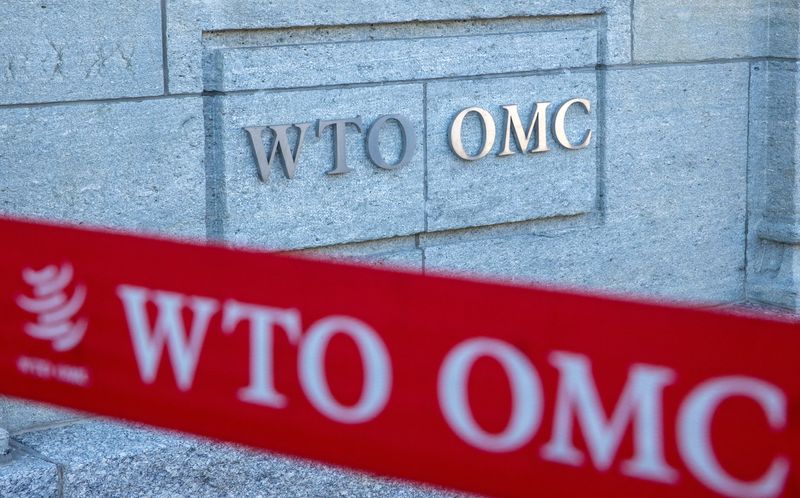GENEVA (Reuters) -The World Trade Organization found on Wednesday that the United States had violated global trading rules by insisting that products imported from Hong Kong be marked as coming from China, a ruling rejected as "flawed" by Washington.
Until 2020, the United States had treated Hong Kong, which is a separate WTO member, in the same manner as before it passed from British control in July 1997.
Then U.S. President Donald Trump signed an order requiring that be changed, with Washington arguing that the Chinese territory was not sufficiently autonomous to justify treatment different from that of China. The order came into effect in late 2020.
A three-person WTO adjudicating panel found that the United States violated an obligation towards Hong Kong, by giving it less favourable treatment than other WTO members in terms of marks of origin on its products.
The United States said it had applied an exception allowing for measures to protect a country's "essential security interests".
The panel acknowledged that tensions had increased between the United States and Hong Kong, but said these had not risen to an "emergency in international relations", the threshold required to apply the exception.
The panel concluded its 96-page report by saying that the United States should bring its measure into conformity with global trading rules.
The United States said that it strongly rejected the "flawed" interpretation and conclusions of the panel and that it did not intend to remove the marking requirement.
"The U.S. action responded to highly concerning actions by the People's Republic of China to erode Hong Kong, China's autonomy and the democratic and human rights of its people, threatening U.S. national security interests," U.S. Trade Representative spokesperson Adam Hodge said in a statement.

The Hong Kong government welcomed the ruling and said it had affirmed its special status as a separate customs territory.
"The revised origin marking requirement is politically motivated and a vain attempt to interfere with Hong Kong's internal affairs through weaponising trade," Algernon Yau, secretary for commerce and economic development, said in a statement.